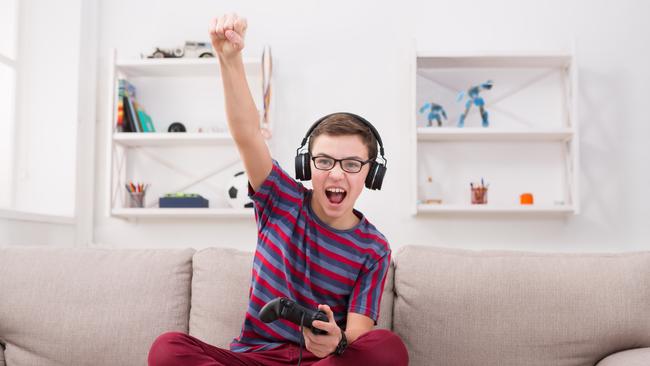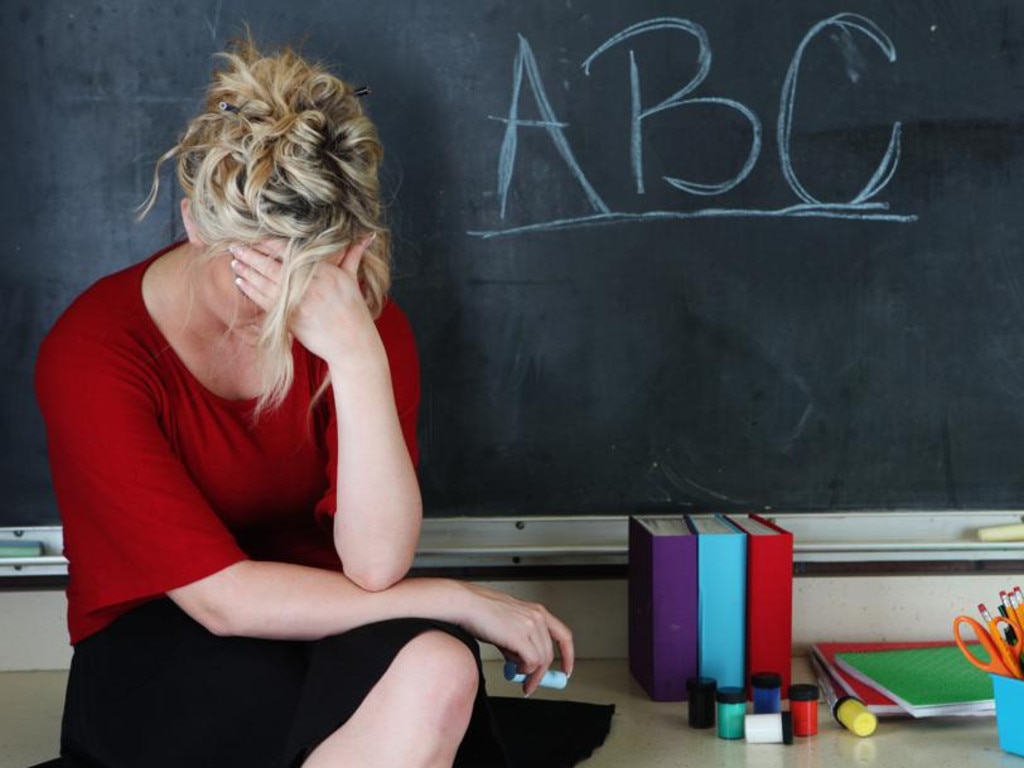Gaming ‘is ruining literacy of teenage boys’, study finds
Online gaming is ruining teenage boys’ reading skills, education leaders have warned, as soaring screen time produces the poorest literacy results in 14 years.

Online gaming is ruining teenage boys’ reading skills, education leaders have warned, as soaring screen time produces the poorest literacy results in 14 years.
As South Australia and the Northern Territory prepare to join Victoria, Tasmania and Western Australia in banning smartphones in all state school classrooms, a leading researcher says boys’ literacy is lagging from hours spent gaming.
Pasi Sahlberg, the co-author of Growing Up Digital Australia, an ongoing study of children’s online usage for the Gonski Institute at the University of NSW, said many boys were spending six to nine hours a day gaming online.
“What’s happened in the last 10 years is that boys have gone more into gaming,’’ Professor Sahlberg said. “The girls are more into social media so they communicate and write and read a little bit more.’’
A growing gender gap in literacy is revealed in results from this year’s National Assessment Program – Literacy and Numeracy (NAPLAN), which tested more than a million students in years 3, 5, 7 and 9.
The reading results for year 9 boys aged 14 and 15 are the worst since NAPLAN tests began in 2008 – the year Apple introduced its smartphone to Australia.
Professor Sahlberg said the Growing Up Digital study – part of an international research project with Harvard University – found 60 per cent of teachers and principals believed the number of children arriving ready to learn has fallen in the past five years.
The most popular online game for boys, Fortnite, was introduced five years ago.
Professor Sahlberg said many children were “learning to write on a smartphone’’.
“They create their own (spelling) rules and grammar and don’t learn to enjoy reading for fun.’’
Concern over the “digital damage’’ to student learning is growing, with Queensland now the only state to rule out a blanket ban on smartphones in schools.
NSW has banned phones in public primary schools while SA and the NT will ban them in all schools next year, joining Tasmania, Victoria and WA.
SA Education Minister Blair Boyer said the ban would reduce bullying, encourage physical activity during breaks, and “improve the overall learning environment’’.
“The new policy will see a major shift in our schools and bring students’ focus back to their learning by eliminating a significant and common distraction in our classrooms,’’ he said.
Australia’s top-performing education system, in Victoria, became the first to ban mobile phones across public primary and high schools, in 2020.
“Our school mobile phone policy has removed major distractions from our classrooms, ensuring teachers can teach and students can have the best possible environment to learn in,’’ a Victorian government spokesperson said.
“Teachers at schools have reported that students are more focused during class learning.’’
Australian Secondary Principals Association president Andrew Pierpoint said boys learned differently to girls, and were more attracted to the “whiz-bang and colour’’ of online games.
“It does affect boys’ learning at school and at home,’’ he said. “If they’re up til 2am gaming, they’re going to be tired the next day.’’
Australian Primary Principals Association president Malcolm Elliott praised the ban on smartphones as “a sensible solution’’, so that teachers and students were not “constantly disrupted and interrupted’’ in class.
This year, nearly one in seven boys in year 9 failed to meet the minimum standard for reading – double the failure rate for girls, and much higher than the failure rate of one in 18 boys in 2008.
In grammar and punctuation, 17.5 per cent of year 9 boys failed the test this year, compared with 13.5 per cent in 2008.
One in five teenage boys failed the writing test – double the rate for girls.
The Australian Institute of Family Studies has found that boys are more likely than girls to play video games.
Its Longitudinal Study of Australian Children, which tracked 3000 teenagers from the age of 12 or 13 in 2012 to 16 or 17 in 2016, found that half the boys played video games daily, compared with a third of 12-year-old girls and 20 per cent of girls in senior high school.








To join the conversation, please log in. Don't have an account? Register
Join the conversation, you are commenting as Logout